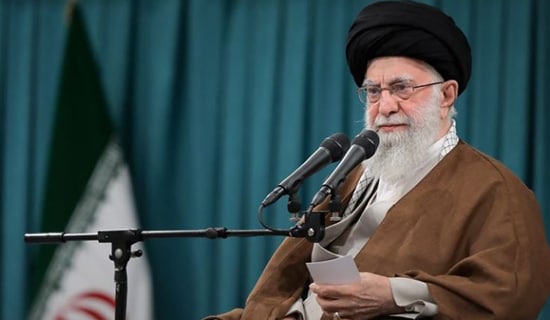Introduction
In May 2009, four women were elected to the Kuwaiti parliament, for the first time in this country's history. Two of these women – Dr. Asil Al-'Awadi and Dr. Rola Dashti – do not wear the veil, and since their election, Islamists in the country have been demanding that they be required to wear it.
MP Muhammad Hayef appealed to the Minister of Endowments and Minister of Justice, Rashed Al-Hammad, with a demand to give a formal expression to the Kuwaiti law which states that "a condition for women to vote and be elected is to abide by the rules and terms of shari'a law." In response, the Religious Endowments Ministry issued a fatwa stipulating that the MPs must wear a veil like all other Muslim women. The fatwa stated that "when appearing in front of men not related to her, a Muslim woman must abide by the shari'a requirement to wear a veil hiding her entire body, except for the face and hands. [Furthermore], the veil must not be sheer so as to reveal any part of the body, must not be narrow so as to reveal her figure, and must not attract men's looks in any way."[1]
Islamist MPs treated the fatwa as binding, stating that "the veil is [both] a legal and a religious duty."[2] Liberals, on the other hand, including the women MPs themselves, argued that the fatwa contravenes Kuwait's democratic character, and that fatwas like these threaten to turn Kuwait into a Taliban state. They also pointed out that the fatwa is at odds with Kuwait's constitution, which upholds individual freedoms, and therefore cannot be binding, since the constitution is the supreme legal source of authority.[3]
On October 11, 2009, woman MP Dr. Rola Dashti proposed abolishing the clause in the Election Law requiring parliamentary candidates to abide by shari'a.[4]
On October 28, 2009, the Constitution Court rejected a lawsuit filed by attorney Hamad Al-Nashi against the two women MPs who do not don the veil, in which he demanded to revoke their membership in the parliament for violating the shari'a. The court ruled that "the laws of the Islamic shari'a do not have a binding force like the basic laws [of the state], unless the legislator has intervened and so stipulated... The Kuwaiti constitution does not stipulate that the shari'a – that is, Islamic law – is the sole source of legislation, nor does it preclude the legislator from utilizing other sources [of legislation], out of consideration for the people's [needs]. Moreover, the constitution guarantees complete religious and personal freedom and forbids discrimination... based on [an individual's] religion or gender."[5]
MP Asil Al-'Awadi welcomed the court's ruling, stating that it represents a triumph for Kuwait's constitution and will end the debate on the veil which has been taking up parliament's time. MP Rola Dashti said: "We four women MPs will continue to represent the Kuwaiti people in the best possible manner... This is not a triumph [only] for two women MPs or [even] for the Kuwaiti woman – it's a triumph for democracy." She explained that even though the parliament is not a holy place or a house of worship, the women MPs would be careful to dress modestly and elegantly. She added that the court's ruling put an end to the attempts of "those who wish to bring Kuwait back [to an earlier era]." [6]
MP Muhammad Hayef, for his part, said that he planned to appeal again to the Constitutional Court in this matter, and called on MPs Dashti and 'Awadi to "abide by Allah's law... in order to turn over a new leaf and quell this storm that has pitched the country into a crisis [caused by] disobedience to Allah's laws."[7]
The Endowment Ministry's fatwa and the court ruling reignited the debate between two prominent camps in Kuwait, that is, the Islamists and the liberals, over the character of the Kuwaiti state and over which is the ultimate source of authority – shari'a law or the statutory laws.
The following are excerpts from reactions by liberal writers condemning the fatwa and the attempts by Kuwaiti Islamists to impose their views on the rest of society.
The Fatwa: A Coup Against the Kuwaiti Constitution
An editorial in the Kuwaiti daily Al-Jarida, published the day after the fatwa was issued, said: "The Endowment Ministry's fatwa is nothing less than a coup against the [Kuwaiti] constitution, a blaring call to civil war, and a blow to the principles of Kuwaiti society. As such, it should not pass without response... The Endowment Ministry committed a crime yesterday, because [this fatwa] is a conspiracy to replace the regime – a conspiracy that is endorsed by some people, encouraged by men of influence, and excites [the emotions] of ignorant and backward people.
"We call on the energetic forces in Kuwaiti society to present a solid front against the fatwa, and we ask the Prime Minister how he can justify [it]... Let him explain the state's position [on this matter]... [Let him explain] what is the status of the constitution vis-à-vis fatwas that aim to abolish it... [We] also have a question for the MPs, for the political forces and for civil society: Do we all understand that this is a systematic [attempt] to erode the regime, and [an act of] gambling with the future of the state, society and the next generations?..."[8]

Cartoon in Al-Jarida shows Kuwait wrapped in a veil[9]
The MPs Must Come Out in Defense of Individual Freedoms
Kuwaiti columnist Iqbal Al-Ahmad called on Kuwaiti MPs to defend the freedoms guaranteed by the constitution. Addressing the women MPs, she wrote: "...Dear MPs... You must emphasize the importance of the constitutional articles that guarantee [individual] freedoms... MPs of both genders must come out against the repeated attempts made in [this] parliament, in the name of religion, to [deny] individual freedoms pertaining to dress, education and lifestyle..."[10]
Kuwait Is in Danger of Becoming a Shari'a State
Kuwaiti columnist Muhammad Musa'id Al-Saleh wrote: "Could Kuwait become a religious state? Judging by the growing [popularity of the Islamist movement] among the people, I assess that such a state will indeed come to pass, and that the 'black tents' [i.e. veiled women] will fill its streets. The majority in parliament belongs to the bearded conservatives – those forces that have begun promoting religious ideas such as preventing the mixing of genders in the universities or excluding women from parliament so that they will be prisoners in their homes...
"The strange thing is that these religious forces exploit [both] the religion and the [secular] law... [e.g. by relying] on fatwas by the Endowments Ministry in matters of shari'a, [but also by] appealing to the Constitutional Court, [trying to] turn it into a religious shari'a court. The next step will probably be to appoint religious scholars to the Supreme Court. After all, anything is possible. It is saddening that the state fills the citizens' [minds] with religious [propaganda] through the programs on its media channels, and thereby promotes extremism more than it promotes the moderation to which it calls. The free public must work to prevent Kuwait from becoming a religious state..."[11]
The Regime Must Put an End to Religious Tyranny
Columnist Ahmad 'Issa wrote in a similar vein: "This fatwas and others [like it]... reflect the dangerous [phenomenon] of harnessing religion and subordinating it to political agendas. In this case, an MP appealed to the fatwa authority [in the Endowments Ministry] with a request to interpret [a Kuwaiti] statute... This will not be the last time [this happens], unless we prevent [people] from mixing religion into their personal and political [agendas].
"The attempts to harness religion and subordinate it to political issues must be rejected. [The principles of] freedom and equality [among people] must be upheld. It is the ministers and MPs who are [our] legislators – not the religious clerics. [And] it is the people who determine the [character] of the state – not the fatwa authority.
"The struggle today is not between those who wish to enforce the [laws of] religion and those who are against religion, as some people think. The struggle hinges [on the question of] what is the source of authority – the religion or statutory law? The answer to this question will determine the direction that Kuwait will take... What we are witnessing [today] is the result of the regime's handing over the leadership to political Islam. It is the regime that is responsible [for the current situation]... [and] the regime must put an end to the religious tyranny we are witnessing...
"[As liberals], we are battling alone against the forces of extremism inside the government and outside it. The setback we are experiencing today is an inevitable result of a long series of concessions, which enabled political Islam to hijack the state and change its character..."[12]
The Court's Ruling Is Historic – A Triumph For the Constitution
The day after the Constitutional Court rejected the lawsuit against the two women MPs, an editorial in the Al-Jarida daily stated: "This is an historic ruling... which shows that we are still in good shape, and still enjoy a life in which it is the constitution that determines [what we can and can't do]... [We are] not in a Taliban state or in an emirate ruled by clerics whose fatwas determine what is permitted and what is forbidden...
"We reiterate once again: Democracy is anchored in adherence to the constitution and to the basic principles of the regime, including individual freedoms and freedom of opinion, which are very fundamental values. Any disdain for the constitution [or attempts to] bypass it by means of fatwas and laws that contravene these values constitute a severe blow to the regime and to the constitution, and undermine the very foundations of democracy.
"The honorable [judges] of the Constitutional Court have clarified that the precepts and principles of the constitution form the basis [of our legal system], and that any interpretation of the constitution or of [our] laws must be in line with the constitution, and not in contravention of it... The honorable [judges] of the Constitutional Court have given us some glimmers of hope amid the despair and frustration [that dominate] our lives, stressing that the implications and principles of the constitution take precedence over any personal interpretations, and that [these principles] are stronger than any attempt to twist and distort them. [They also demonstrated] that there are those who protect and defend [the constitution] – for defending it is defending Kuwait."[13]
*A. Amar is a research fellow at MEMRI
Endnotes:
[1] www.alaan.cc, October 7, 2009; Al-Siyassa (Kuwait), Al-Jarida (Kuwait), October 8, 2009.
[2] This claim was made by MP Jama'an Al-Harbash at an October 24, 2009 conference of Islamist MPs. Al-Khaleej (UAE), October 26, 2009.
[3] Al-Jarida (Kuwait), October 9, 2009; Al-Khaleej (Kuwait), October 26, 2009.
[4] Al-Quds Al-'Arabi (London), Al-Sharq (Qatar), October 26, 2009.
[5] Al-Jarida Al-Siyassa (Kuwait), October 29, 2009.
[6] Al-Jarida, fAl-Siyassa (Kuwait), October 29, 2009; Al-Siyassa (Kuwait), October 30, 2009.
[7] Al-Jarida (Kuwait), October 29, 2009.
[8] Al-Jarida (Kuwait), October 8, 2009.
[9] Al-Jarida (Kuwait), October 8, 2009.
[10] Al-Qabas (Kuwait), October 13, 2009.
[11] Al-Qabas (Kuwait), October 13, 2009.
[12] Al-Jarida (Kuwait), October 14, 2009.
[13] Al-Jarida (Kuwait), October 29, 2009.








